An interview with writer and translator Bill Porter/Red Pine
Part 1: From China to Port Townsend
I was driving across the border once again, where BC-99 becomes I-5, and Surrey, BC becomes Blaine, WA. There was a pile up, but the only question the guard asked me was, “where you going today?”
Port Townsend, Washington, was where I was going, to visit my friend, Bill.
Bill Porter, also known as Red Pine, has dedicated his life to translating Chinese poetry, Buddhist sutras, Taoist texts, as well as writing unusual travelogues about journeys to people and places in China rarely visited by non-Chinese. His most famous book is undoubtedly, Road to Heaven: Encounters with Chinese Hermits, and is about finding Buddhist and Taoist hermits in the Chungnan Mountains, near Xi’an. The eventual translation of this book into Chinese, resonated especially with a Chinese public hungry for its spiritual and cultural roots, and is responsible for much of Bill’s current royalties.
Continuing down the highway, I zoomed past the familiar huge American flag by a storage park, still accompanied by the same giant sign: TRUMP 2024 - MAKE AMERICA GREAT AGAIN.
Toxic nationalism is an enduring feature of American life, but it still jars me whenever I return to the country where I was raised, however briefly. This flag nonsense made me think of a famous zen story, about two monks arguing about a temple flag flapping in the wind. One monk said that it was the flag that moves, while the other said it was the wind. Finally, the 6th patriarch of zen, Hui-neng, who happened to be wandering along, said simply,
“it’s not the wind or the flag that moves, it’s your mind that moves.”
There’s plenty of flags in and around Blaine; it seems like the kind of place cops live.
I stopped at the REI in Bellingham to do a return and exchange of a sleeping pad, and then hightailed it to make it to the 4:15 ferry in time out of Coupeville. After passing the biggest flag yet, I turned west onto I-20, through the narrow inlets of Deception Pass and the small island communities past it. As I got within a few miles of the ferry dock, the landscape narrowed, and the lone farmhouses set amidst green rolling hills could have passed for somewhere off the Irish or Scottish coast.
I got in line for the ferry with 7 minutes to spare. As he slowly ate a crumbling sandwich, the older man in the ticket booth seemed unhurried. As usual, the machine rejected my Canadian credit card for inexplicable reasons, despite working all over Mexico. As I paid cash, I mildly complained,
“this happens every time, you guys need to update your machines.”
“Old machines,” he chewed, as he took my cash, “lane number 4.”
Once aboard for the short ride back to the Olympic Peninsula, I left the car and walked up a few flights of stairs to the deck to enjoy the view. The green mound receded into the distance across the water. A small figure was slowing ascending above an RV park. In the other direction, birds and a porpoise greeted me, dancing and jiggering amongst the froth.
Arriving in Port Townsend, which has a sign that quirkily announces itself as a Victorian Seaport and Arts Community, I walked around the old brick buildings by the water, and enjoyed the warmish light, beautiful for March. Some people and boats were out on the water. The town seemed sparsely attended, as mostly older people enjoyed themselves on the occasional wine bar patio or just walked around. People of all ages, in fact, seemed much happier and more relaxed than just about anyone in Vancouver or Seattle.
Whenever I’m there, I always think of The Sandman (by Neil Gaiman) subplot that involves Emperor Norton, the first and only self-proclaimed emperor of America, who ruled from the dark and delirious dreams of late 1800s-Victorian San Francisco. At one point, both of these colorful and sinful port cities were slated to become capitals of their respective states, but history has its own plans.
In Port Townsend, there are a series of fun plaques scattered in and around the one-street downtown, talking about its former glories, and ups and downs. My favorite is about a Grecian statue installed onto a public fountain, bought from NYC. After economic decline, the fountain became disused—and then repurposed by an enterprising man who used it to train trout to jump through hoops—for a price. By the fountain, there’s a picture of the mustachioed entrepreneur, with a trout jumping through a hoop.
I also inhabited my own version of this romantic, ghostly world, when I moved to San Francisco in 2008, into a room of a crumbling house that had survived the 1906 earthquake. Thanks to the location, across the street from Golden Gate Park, I soon became friends with a group of idiosyncratic skaters, who whiled away the afternoons circling around our beloved “asphalt oasis,” a designated area for skaters at the foot of this entrance point, at 6th Avenue and Fulton.
I also liked to explore the blocks around the north-facing Richmond district. Walking down the slope from my house, I would pass the Cinderella Bakery, a Ukrainian joint full of stern employees and delicious poppyseed rolls, and soon find myself, on Clement Street. There, I often visited the wonderful Green Apple Books, which is where I discovered Zen Baggage one day on display, with a shelf talker.
The book was about Bill’s experience traveling around zen monasteries in China, and was kind of a follow-up to Road to Heaven, which I only read later. I had previously lived and traveled in China from 2005-2006, coming away quite disappointed, as part of my interest in going was to investigate some of the things Bill uncovered with his far greater knowledge and experience—the history and influence of Buddhism and Zen in China. I learned that Bill had even visited one of the places I had often gone to, almost the same time as I was there, Yuchuan Temple, right outside of where I was living, in Dangyang, Hubei.
I didn’t know it at the time, but Yuquan was actually a famous zen temple, first established more than 1400 years ago. This was before the days of wikipedia. I often went to the monastery, not only because of my interest in Buddhism, (and more broadly, Eastern philosophy and martial arts, which I had been practicing since I was 16), but because it was a refuge from the rather crowded, polluted, and bewildering, small “town” of Dangyang of several hundred thousand people.
At that time, I was one of two foreigners in the city, to my knowledge, and people would openly point at me in the middle of the street, and yell, because westerners were such a novelty anywhere that wasn’t Beijing, Shanghai, or Guangzhou. It didn’t help that my command of Mandarin at the time was extremely limited. My first formal classes didn’t occur until after I came back from China.
For awhile, another teacher at the school where I taught English (Dangyang No. 2 School) gave me weekly Mandarin lessons. Like most of my other co-workers, I found her competent, reliable, and polite, but mostly inscrutable. When her lessons suddenly halted one week, the only explanation I was given by a manager was that, “she has duties to the party (the CCP).”
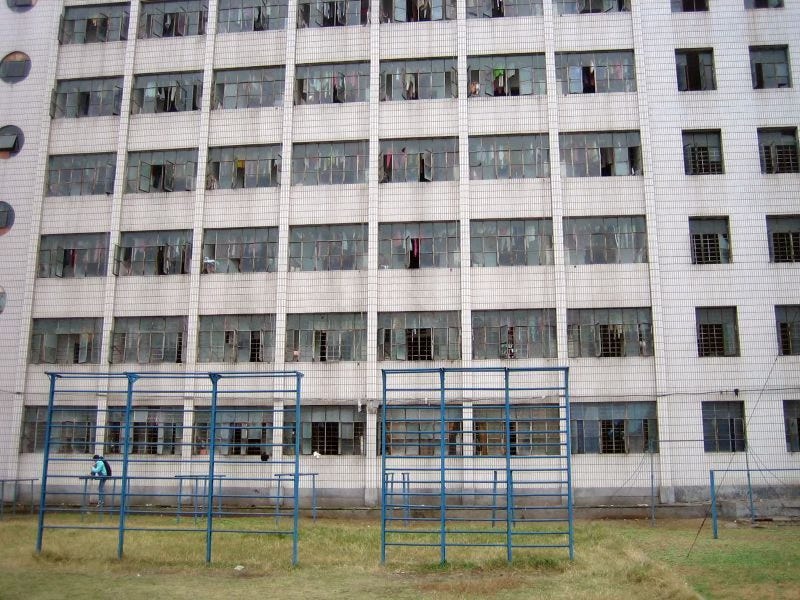

Even before the current era of much greater authoritarianism, and the creation of an advanced Orwellian surveillance state, the main Chinese people I met who were willing to open up to me were those who wanted to unburden themselves to a 外國人 (foreigner, literally “country outsider”), as it presented less risk. Or else, people who were on the “wrong side,” of the modern Chinese economic miracle, like Wang Ting Feng (aka WTF), the young bartender at the California(‘s?) Sun (complete with half of a fake car coming out of its sign), where I would sometimes visit.
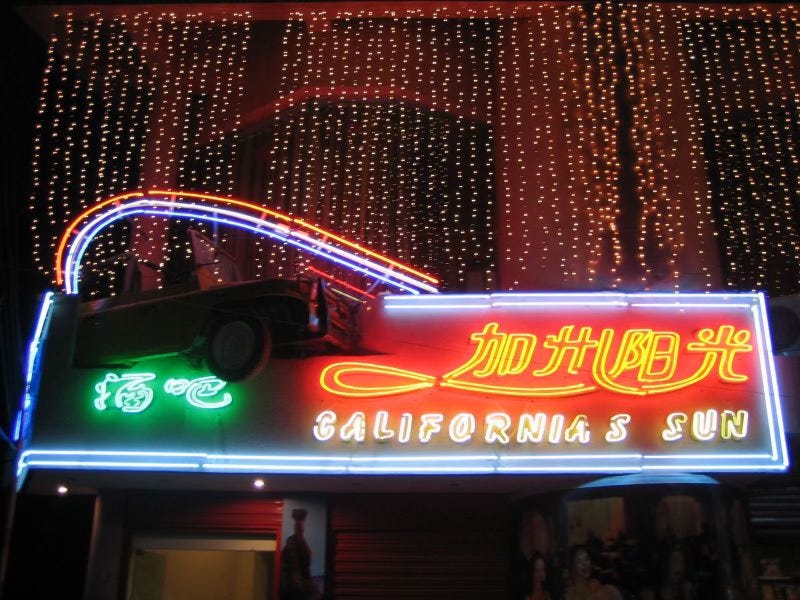
Despite not possessing a deep education, WTF spoke English better than many of the English teachers at my school (much less the students), and seemed generally more aware of the world than many people around him who were higher up on the ladder. One time we met up in Yichang, the local prefectural capital, and found ourselves hanging out in a dilapidated children’s park, I admitted to him that I wasn’t particularly enthralled with life in Dangyang. As he puffed a cigarette and leaned against a rusting swing, he agreed, “I also do not like it.”
WTF also sometimes accompanied me on a three-wheeled taxi out to Yuchuan temple, even though he didn’t share my affinity for Buddhism. The temple grounds were at the base of a moderate hill, and popular with locals as an outing. Going there regularly provided me with a bit of scenery and serenity in an often difficult and perplexing environment.
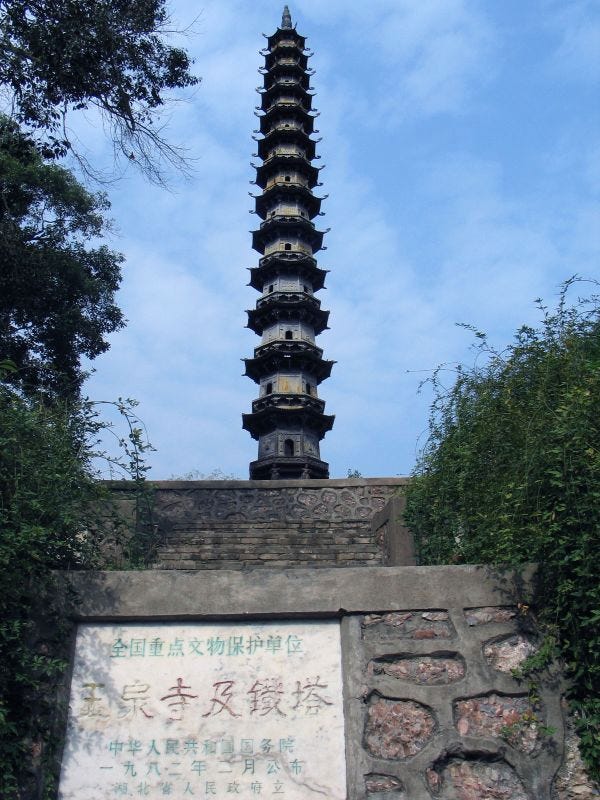

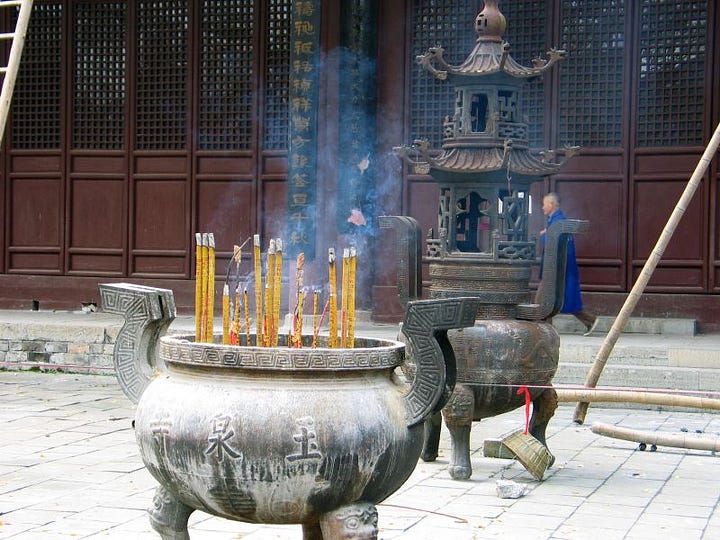
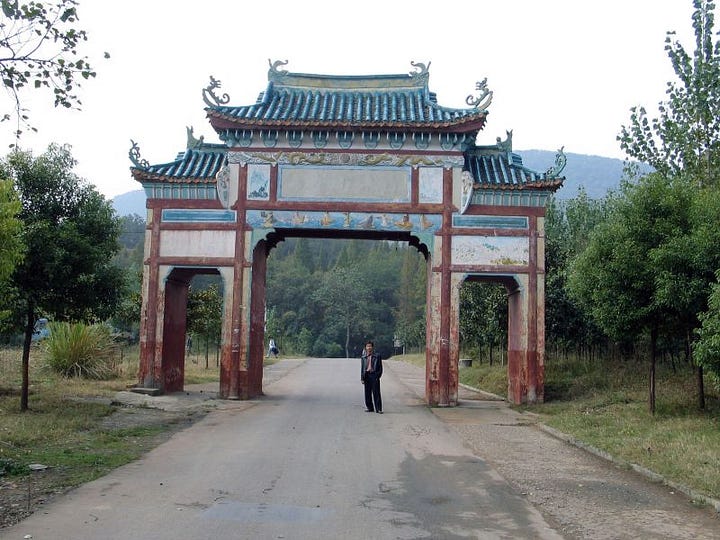
Of course, Hubei province has more recently became infamous for being the likely originator of the Covid-19 virus (via Wuhan, where I once spent an unmemorable 3 days), but that’s another matter. The monks at Yuchuan were some of the only people I encountered in my daily life in China that treated me as a normal human being, not an oddity to be gawked at or taken advantage of, as happened elsewhere. One afternoon, as I lingered late into the afternoon on the temple grounds, dreading returning to my sad apartment, one of them invited me to eat dinner in the mess hall for a simple but delicious vegetarian meal. I was a 21-year old Californian of Mediterranean descent, on a leave of absence from a prestigious institution, eating supper in a hall of Buddhist monks in the Chinese countryside. I remember feeling content.
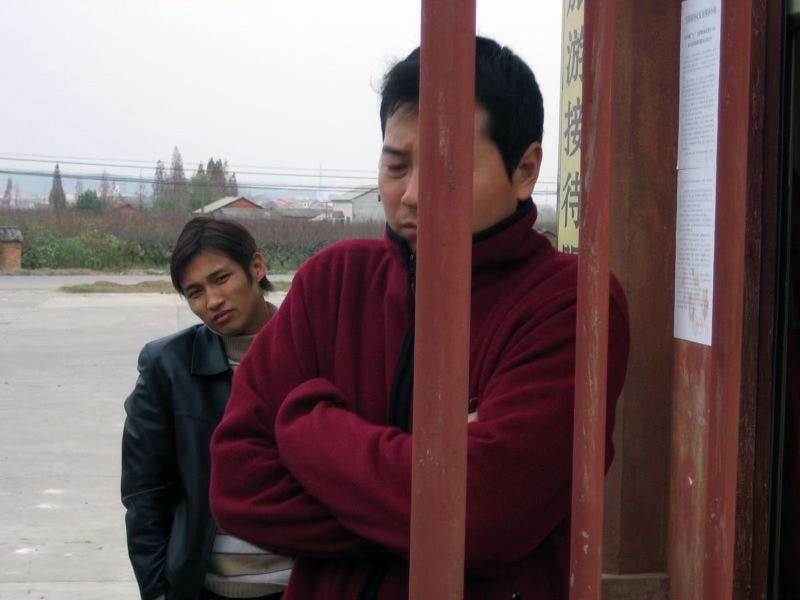
After moving to Vancouver, I knew that Bill lived in Port Townsend, which is also in the Pacific Northwest, and I had been wondering if was possible to contact him. Eventually, I wrote to Bill’s publisher, Copper Canyon Press, and asked if there was a way I could contact Bill. They passed my message on, and Bill wrote me back nearly right away,
“I think people have used other ways to contact me, but the source of my royalties is a good idea. I live in Port Townsend. Stop by for tea anytime you're in the neighborhood.”
And so, I began a correspondence with a local author I admired, making a point to visit him whenever I was passing through the area, usually to hike and camp in the Olympics. After a few short visits, he invited me to come back again, and spend the night next time. Finally, I decided to take him up on the offer, and use the time to interview him about his unconventional life.
When I arrived that night, I found Bill lounging on the couch, drinking whiskey and eating crackers and cake. I shared in some of the goods, as we chatted and watched the original Zaitoichi (after some energetic fumbling with multiple remotes on Bill’s end). As Bill is after all, about 40 years older than me, he went to bed before too long, and I made myself at home in his beautiful backyard cottage, which is a house in of itself.
In both the main house and this adjacent property and garden areas, Bill and his wife’s house is like entering a beautiful inner world, full of books, tasteful Asian designs, tatami, paintings, calligraphy, and of course, plenty of tea. It is a testament to a full life lived trying to bring out the greatest art of China: poetry.
The next morning, after doing some yoga, I accompanied Bill on his daily walk down the slope, across the beach, and back up.
On clear days, you can see both the Olympic and North Cascade mountain ranges across the water along a full panorama. It’s an epic view, even coming from Vancouver. Bill was huffing and puffing on the way up, even as we discussed Tibetan Buddhism, and his future travel plans. Along the way, he pointed out the many vacant luxurious houses around town. Same problem in Vancouver and the world over now. After a meal in my little kitchen, followed by tea, I went back into the main kitchen, where we sat down with our respective tea sets, to conduct this interview.


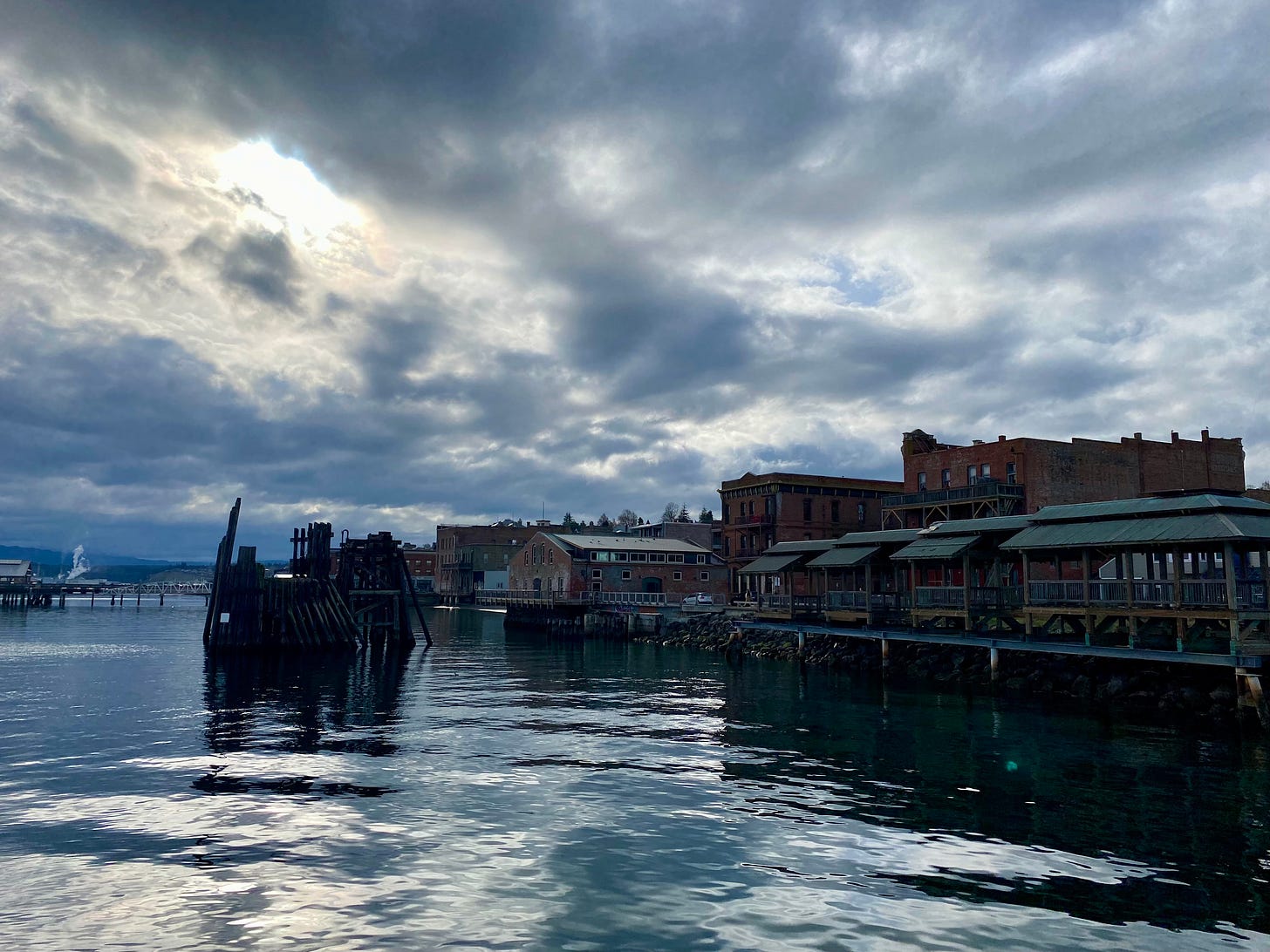
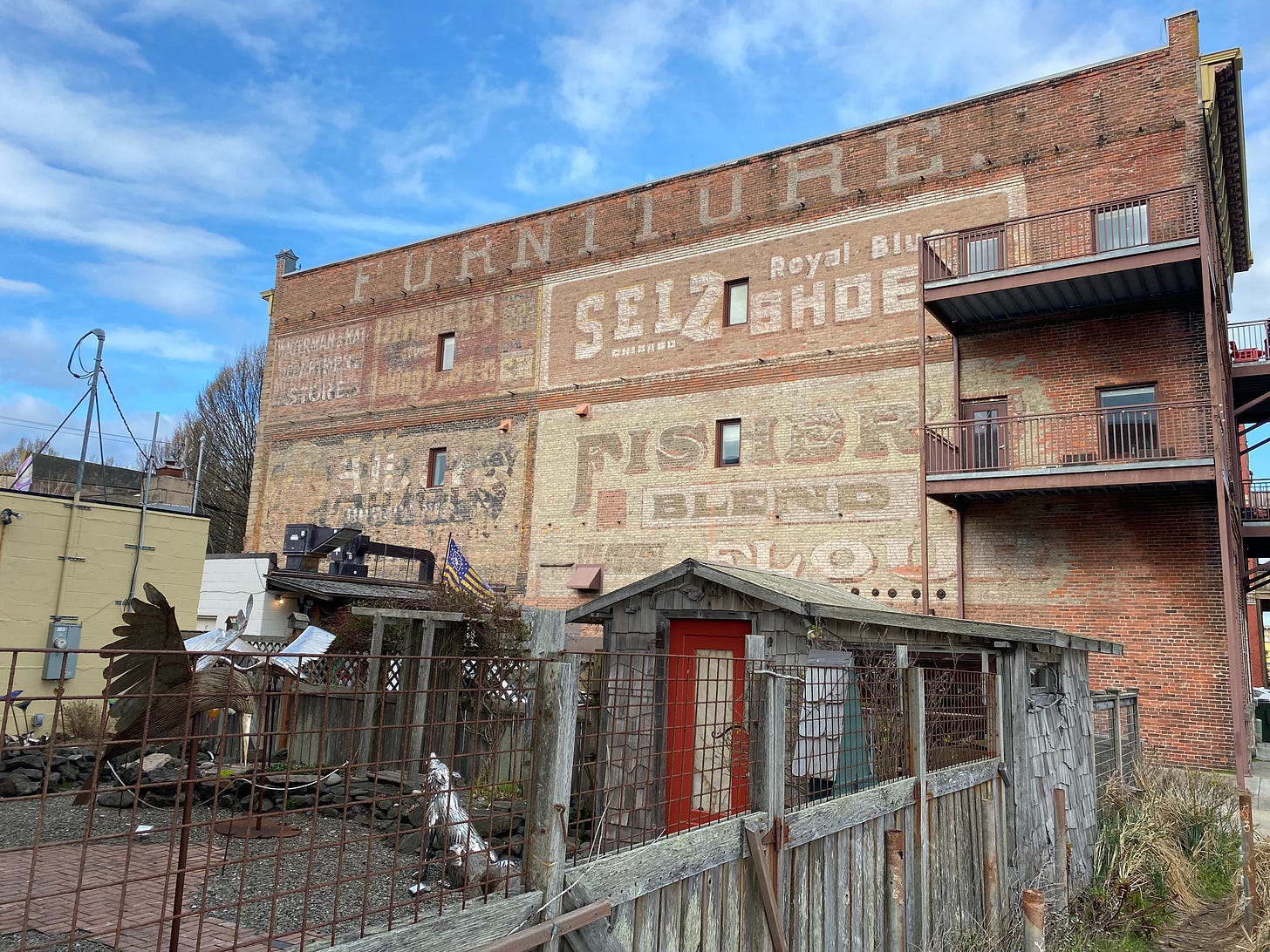

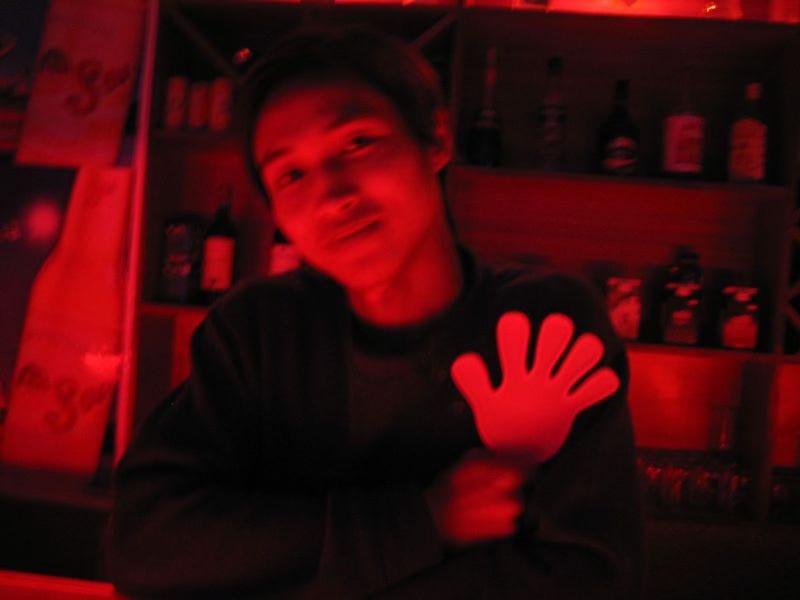
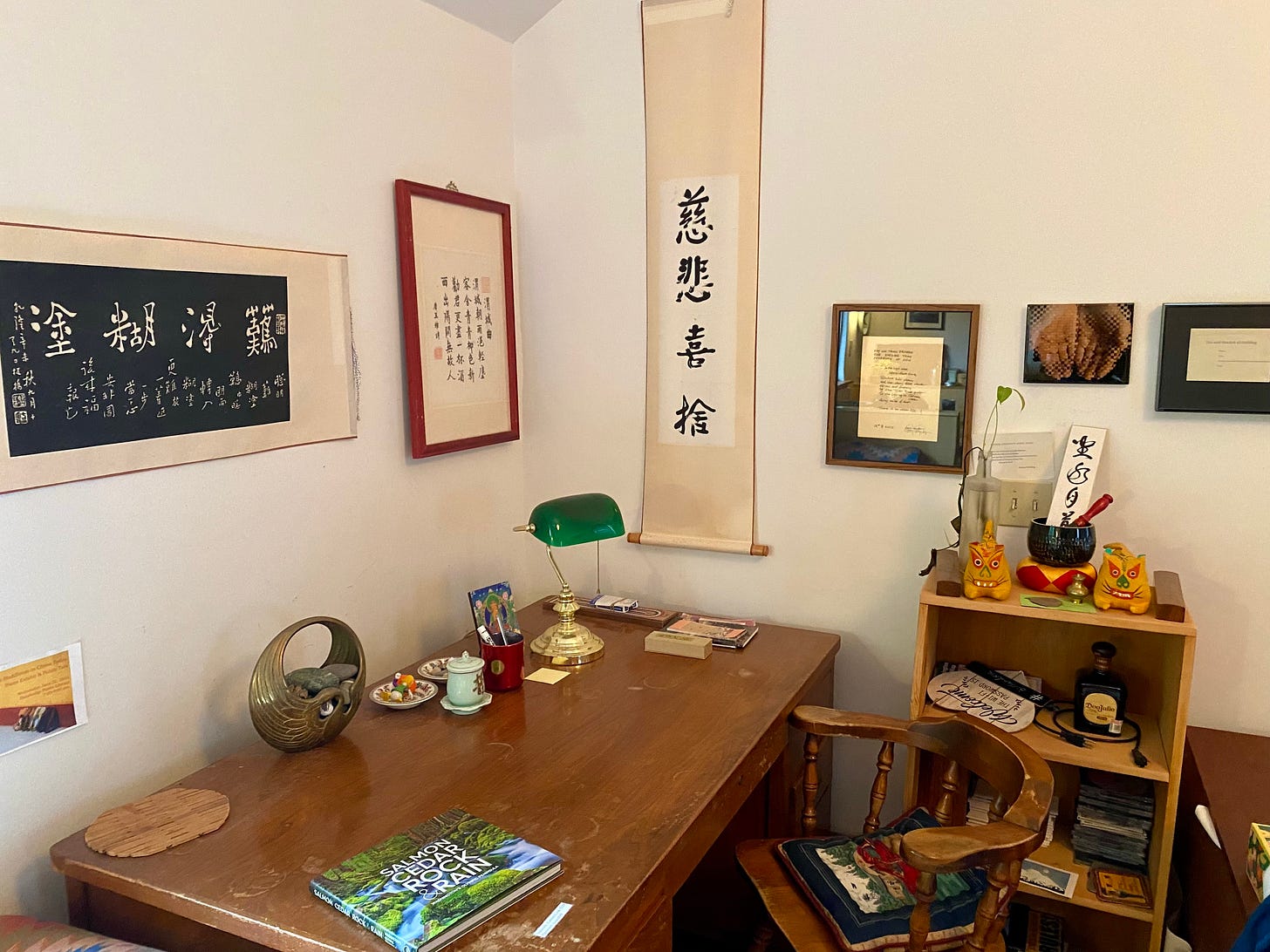
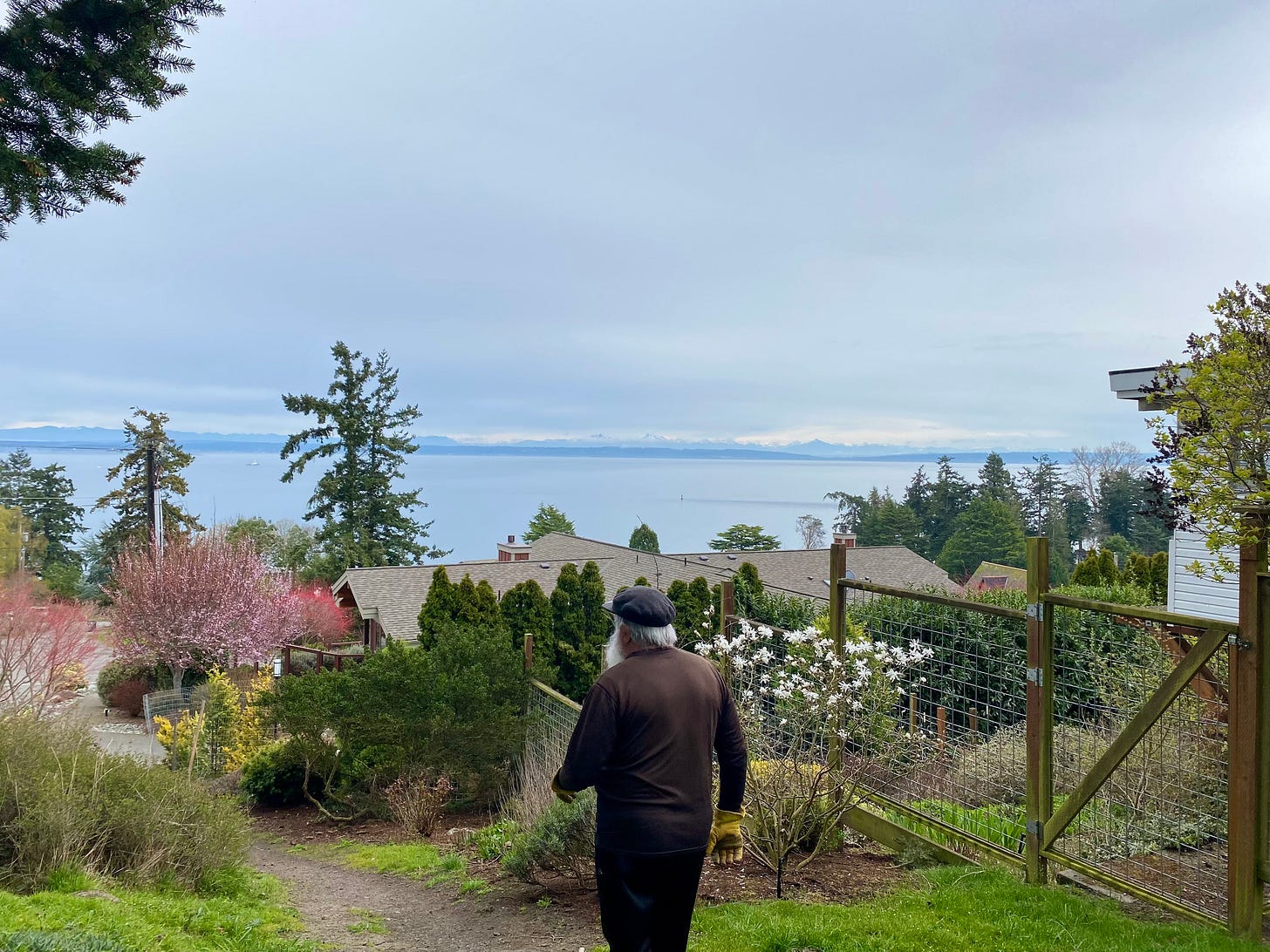
Yuchuan temple reminded me of one universal reality in temple building symbolism: one must climb dozens, hundreds, sometimes thousands of steps to reach the final destination. Probably an apt analogy for many things in life. By the way—that frisbee teaching success should be celebrated. I remember trying to teach the game Mafia to people back home, and they immediately made me feel like one of the most popular American games can really be absolutely ludicrous when seen from a particular point of view. 😂
Outstanding Nick - if I had ever heard of Red Pine or his books I forgot - thanks for such a meaningful and beautifully meandering journey from your house to his, your time in China to his, and your memories into our inboxes.
Absolutely loved it, excited for the next one. (And to be honest hearing more about your time in China and at Chinese temples. My most memorable visit was to Emei Shan in Sichuan, which I continued to remember throughout reading your post). I lived in Chongqing 2011-2013 and related to a lot of the photos, even though I was more than a decade a half in your footsteps.